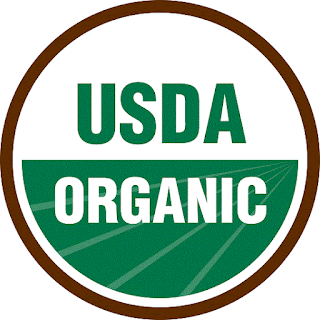Should you buy organic?
So many options for buying organic food. Everyone knows you pay more for organic food. Why? Is buying organic really better for your health? Consumer Reports has some interesting information in their article, Organic Food on a Budget . With food prices increasing many people who bought organic food before are now cutting back. How can you enjoy organic food on a budget?
What does organic mean?
The U.S. Department of Agriculture (USDA) is the federal agency that regulates organic food. To be labeled “organic” food must be grown and processed according to federal guidelines. Or, animals must be raised according to federal guidelines. These guidelines cover soil quality, pest and weed control, and how additives are used.
- Produce – organic produce is grown free of synthetic fertilizers, free of pesticide use. In grocery stores, the organic produce is kept separate from regular produce. I had a student who worked in the produce section of a store and if a customer put an organic banana (or other produce) with the regular bananas, that organic banana was no longer be sold as “organic”.
- Organic meat – animals are raised to live in more natural conditions like grazing on pastures, fed only 100% organic feed and not antibiotics or hormones are administered.
- Organic Milk – this milk comes from cow’s that were not given antibiotics or hormones (e.g. rBST), and have 30% of their diet from the pasture.
Are organic foods healthier?
Many people eat organic foods to avoid the chemicals and hormones. I prefer organic milk to avoid the antibiotics and hormones that can be in regular cow’s milk. Organic produce doesn’t have the pesticide chemicals. In a survey done by Consumer Reports, 42% of Americans thought organic food was more nutritious, and 66% thought it as better at limiting their exposure to pesticides or fertilizers.
Most researchers say organic foods provide the same nutrients in terms of protein, carbs, fat, vitamins and minerals as non-organic foods. However, a study in the British Journal of Nutrition found organic produce provided more antioxidants. But regardless of nutrition value, organic foods do contain less pesticides.
How can you save money on organic foods?
- Grow your own produce. So many people have summer gardens and it is easy to grow your own veggies without pesticides. We don’t have a garden but we do grow herbs and green peppers on our deck. I go out and snip “organic” chives or parsley all spring, summer and fall.
- Shop at stores that have lower-priced organic items like Aldi’s, Costco, and Target.
- Buy organic when it is on sale.
- Big Lots, Dollar Stores may have some organic food items marked down for quick sale.
- Buy the store brand.
- Buy at Farmer’s Markets and ask about pesticide use and organic practices. Some farmers aren’t “certified organic” because of cost but may follow many organic practices.
- Check out frozen fruits and vegetables – usually cheaper than fresh and may be organic. Or buy fresh organic on sale and freeze for later.
What foods should you buy organic?
It really is up to you. Because of cost, we focus mostly on organic milk and as noted above, plant some herbs and peppers in pots on our deck. Consumer Reports recommends buying organic produce but notes these products are higher in price. Every year the Environmental Working Group (EWG) lists the Dirty Dozen, the foods highest in pesticides. These include strawberries, spinach, grapes, nectarines, apples and other foods.
How can you cut back on pesticides without buying organic?
- Focus on buying fruits and vegetables lowest in pesticides? EWG provides a list of the Clean Fifteen. A listing of fruits and vegetables with no or low detectable amounts of pesticides. What foods are on the Clean Fifteen list for 2022?
- Wash fruits and vegetables. Registered Dietitian, Lily Nichols, wrote an interesting blog on the benefits of washing fruits and vegetables. Her conclusions? Washing does help to remove some pesticides. She cited a study (Journal of Agricultural and Food Chemistry,2000) that found “washing produce reduced residues of nine out of the twelve pesticides“ studied.
- Cooking: Another interesting factoid is that cooking vegetables reduces pesticides.
Whether organic or not, eating fruits and vegetables is good for one’s health. One study (Food and Chemical Toxicology, 2012) noted, ..if one-half of the U.S. population were to increase fruit and vegetable consumption by one serving per day, an estimated 20,000 cancer cases might be avoided each year.
Do you buy organic food? What kind? Meat, milk, fruits or vegetables? Do you take time to wash the fruit and vegetables you eat? Feel free to comment below.
Sources: Organic Food on a Budget , labeled , milk , survey , British Journal of Nutrition , Shop , store brand, Dirty Dozen , Clean Fifteen , Registered Dietitian , cooking , study Images: USDA organic seal , Organic percentages , Organic milk






Comments
Post a Comment